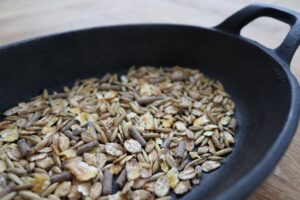 Horses and ponies have specific dietary needs essential for their overall health and well-being. Proper nutrition is crucial for maintaining their strength, stamina, and longevity. In this article, we’ll delve into the dietary requirements of horses, exploring what they eat, why it matters, and how to ensure they receive the nutrients necessary for a healthy life.
Horses and ponies have specific dietary needs essential for their overall health and well-being. Proper nutrition is crucial for maintaining their strength, stamina, and longevity. In this article, we’ll delve into the dietary requirements of horses, exploring what they eat, why it matters, and how to ensure they receive the nutrients necessary for a healthy life.
Forage – The Foundation of a Horse’s Diet:
The cornerstone of a horse’s diet is forage, typically in the form of high-quality hay or pasture. Horses are natural grazers, and their digestive systems are designed to process fibrous plant material. Pasture grazing allows horses to mimic their natural behaviour, providing not only essential nutrients but also promoting dental health and mental well-being.
Hay, whether it’s grass hay (such as timothy or Bermuda) or legume hay (such as alfalfa), serves as a vital component of a horse’s diet, especially when pasture is limited or unavailable. The roughage from hay aids in digestion and helps prevent colic and other digestive issues.
Concentrates – Meeting Additional Nutritional Needs:
While forage forms the foundation, horses often require additional nutrients that may be lacking in hay or pasture alone. Concentrates, including grains and commercial feeds, are designed to supplement the horse’s diet with essential vitamins, minerals, and energy.
When choosing concentrates, it’s crucial to consider the horse’s age, activity level, and overall health. For instance, growing foals, pregnant or lactating mares, and performance horses have specific nutritional requirements that differ from those of idle or senior horses. Consulting with a veterinarian or equine nutritionist can help determine the most suitable concentrate for an individual horse.
Traditional Feedstuffs
For generations, horse owners have turned to traditional feedstuffs to supplement their horses’ diets. Oats, with their high fiber and moderate energy content, have been a staple, providing horses with a slow-release energy source. Flaked barley and flaked maize add diversity to the mix, offering additional energy and nutrients.
Chaff, a mixture of chopped hay or straw often combined with molasses, can enhance the palatability of a horse’s diet while providing additional fiber. Bran, derived from the outer layers of grains, has been utilized historically to add bulk to the diet and aid in digestion.
Modern Mixed Bags – Convenience and Balance:
In the contemporary equine nutrition landscape, horse owners have the option of using commercially formulated mixed bags of horse food. These blends are designed to provide a well-balanced combination of essential nutrients, including proteins, vitamins, and minerals. The convenience of these pre-mixed feeds can be especially beneficial for horse owners with time constraints or those seeking precise control over their horse’s diet.
Choosing between traditional feedstuffs and modern mixed bags often depends on various factors, including the horse’s age, activity level, and specific nutritional needs. While traditional options allow for a more hands-on, customizable approach, mixed bags offer a convenient and scientifically formulated solution for achieving a balanced diet.
Water – The Most Critical Nutrient:
Water is arguably the most critical nutrient for horses. Adequate hydration is essential for digestion, nutrient absorption, temperature regulation, and overall health. Horses can drink a significant amount of water daily, and access to clean, fresh water should be available at all times, whether in the pasture or the stable.
Salt and Minerals – Balancing Electrolytes:
Horses need a balance of essential minerals to support various bodily functions. Salt blocks or loose salt should be available to horses to encourage them to consume adequate amounts. Additionally, providing a mineral supplement tailored to the specific needs of the horse, based on factors like regional soil content and forage quality, can help prevent mineral deficiencies.
Nutrition Conclusion:
Understanding what horses eat is fundamental to responsible horse ownership. A well-balanced diet consisting of high-quality forage, appropriate concentrates, access to clean water, and necessary minerals is essential for promoting good health, preventing nutritional deficiencies, and ensuring a horse’s vitality throughout its life.
Regular monitoring, adjusting the diet based on individual needs, and consulting with equine nutrition professionals are key practices in maintaining a healthy, happy horse. By prioritizing proper nutrition, horse owners contribute to the overall well-being and longevity of these incredible animals.